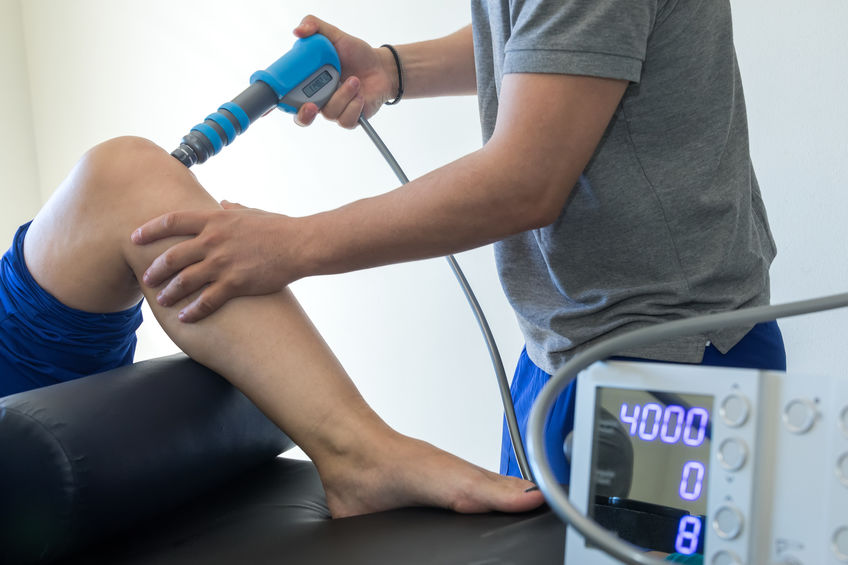 Muscle therapy includes manipulation of muscles by way of massage and application of heat and cold pressure. The most common benefit of muscle therapy is treating chronic pain and elevating your moods. In the world of sports, muscle therapy also helps reduce muscle inflammation, which is the main cause of muscle pain. This article seeks to answer how muscle therapy helps with muscle inflammation.
Muscle therapy includes manipulation of muscles by way of massage and application of heat and cold pressure. The most common benefit of muscle therapy is treating chronic pain and elevating your moods. In the world of sports, muscle therapy also helps reduce muscle inflammation, which is the main cause of muscle pain. This article seeks to answer how muscle therapy helps with muscle inflammation.
- Reduced Muscle Tension
When you have muscle inflammation, you experience a lot of pain around the muscle area, making it hard to move your body without experiencing any pain. Muscle therapy makes the areas of focus release feel-good hormones that help in reducing the stiffness of the muscle and straightens them so that the swelling goes away and you can now move the affected part of the body without any more pain.
- Increased Blood Flow
The cause of swelling or inflammation of muscles is because blood capillaries in those parts of the body have been damaged or ruptured, hence the accumulation of blood since it cannot be distributed to other parts of the body as it is supposed to. However, with several sessions of muscle therapy, the blood capillaries are supported and repaired so that they straighten well and this allows blood to flow easily throughout such areas. The increase in blood flow helps reduce muscle inflammation hence no more pains.
- Relaxed Nerve Endings
When you experience a muscular injury, the blood capillaries in that particular part of the body are damaged and this leads to the accumulation of blood since it cannot be distributed to other parts of the body. As a result, the nerve endings on the affected parts of the body become irritable because of excessive rise in temperatures, hence severe pains. However, since muscle therapy also incorporates the use of heat and cold pressure treatment on muscles, it treats muscle inflammation by reducing temperatures on the focus areas and the result is reduced muscle pain.
- Reduced Cytokines
Cytokines are a class of proteins that have various functions in the body such as being responsive to injury so that inflammation of muscles occurs. A muscle that has inflammation has a higher concentration of these proteins. Although reduction of the proteins in inflamed parts of the body does not necessarily mean the cure associated with muscle therapy, it is still enough evidence to show the role muscle therapy plays in alleviation of muscle inflammation. The relieve that the muscle experiences after reduction of these proteins works the same way as when someone takes non-inflammatory drugs such as ibuprofen. In addition, muscle therapy reduces the production of proteins cytokines and these are replaced by the feel-good hormones endorphins and serotonin that are responsible for the relief you experience after the session.
- More Mitochondria
Mitochondrion is responsible for providing cells with energy and this, therefore, means that the muscles will perform better when there is more mitochondria. Muscle therapy helps with more growth of mitochondrion. A study was done with one injured leg and another healthy leg as a control experiment. Muscle therapy was subjected to the leg with muscle inflammation and results taken at the end of the treatment. The leg that had muscle inflammation showed a single mitochondrion biogenesis signal, compared to the control leg that did not show any sign of mitochondrion growth. This may not have been enough to substantiate this claim, but it is a good sign that muscle therapy indeed helps reduce muscle inflammation.
Muscle therapy has been used over the years as an aid to minimize pain and promote the recovery of injured muscles. Muscle therapy can help improve blood flow, moderate inflammation, and get rid of tissue stiffness. This ultimately leads to a reduction in pain, minimizing muscle inflammation, and promoting better overall wellbeing.
Despite the contentious debate that has revolved around the role of muscle therapy in treating muscle inflammation through injury, the benefits of muscle therapy are clear for everyone to see and sports personalities know better. Although the effects of muscle therapy on muscle inflammation may be less enough to substantiate these claims, the little effect it plays is just enough and is what the sports persons and everyone else needs. For that reason, sports persons should have it every week while for non-sportsmen, they should have muscle therapy on a regular basis. However, for you to have the best experience and make most of muscle therapy, you should make sure that the therapist is qualified and licensed.

